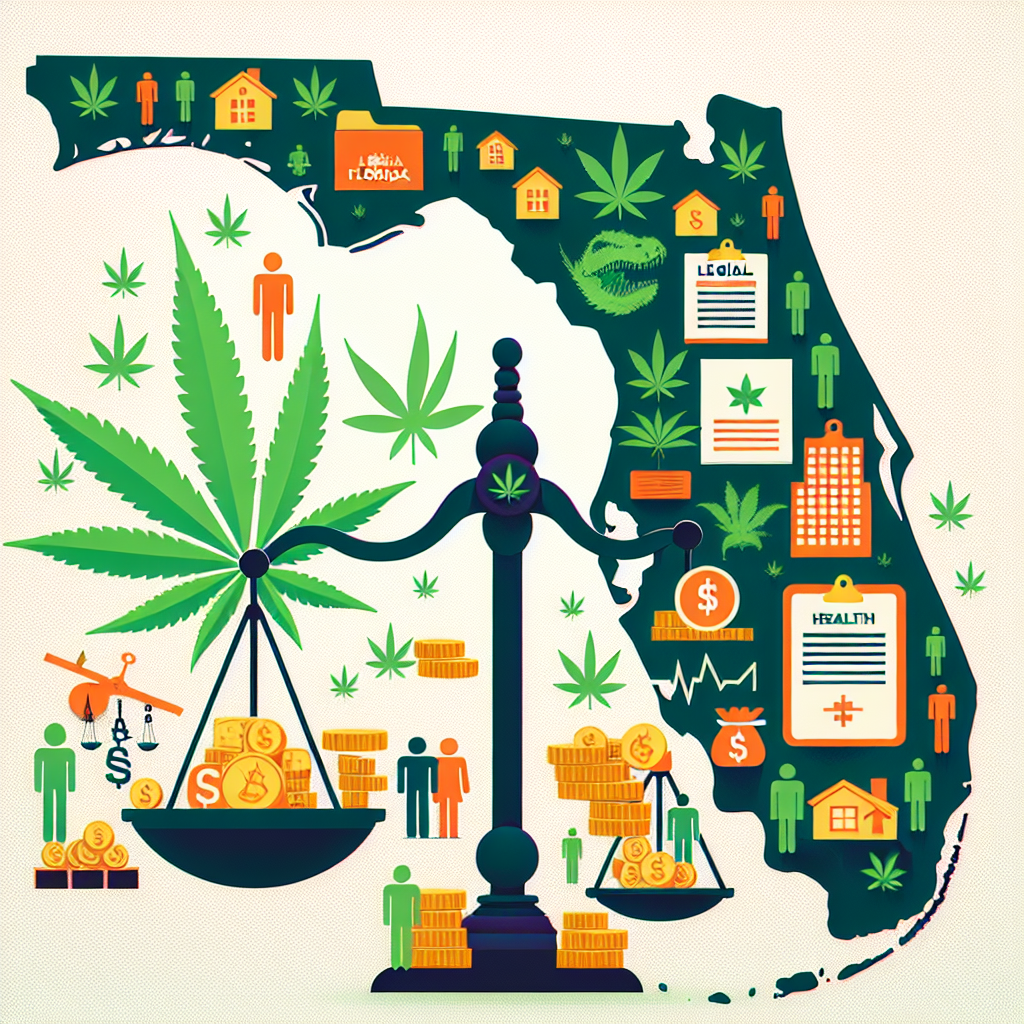
The Referendum Set to Transform Florida’s Cannabis Scene
Florida’s Cannabis Referendum: A Game Changer?
The cannabis industry in Florida is poised on the brink of a transformative moment, as a referendum on legalizing marijuana draws closer. This decision holds the potential to not only reshape the state’s market but also set a precedent for the entire southeastern United States. Stakeholders are closely monitoring the situation, acutely aware that the outcome could unleash a cascade of economic and regulatory impacts.
Despite the excitement, the Florida referendum is marred by uncertainties. Advocates are concerned about potential challenges in the implementation of legalization, should the vote go through. There are questions about how regulations will be crafted, what the taxation landscape will look like, and how the market will be structured. The state government will need to balance the creation of a business-friendly environment with the implementation of robust health and safety measures.
On the business front, established cannabis industry entities may see greater opportunities for expansion, while new players could find a fertile ground for entry. Meanwhile, ancillary businesses, like those providing cultivation equipment or financial services, are likely to experience a surge in demand.
Florida’s potential market size cannot be ignored. With its large population, including a significant number of retirees who might seek medical cannabis, the state represents a lucrative opportunity for the industry. However, many are calling for a careful approach to the number of licenses issued to avoid an oversaturated market.
The cannabis industry in Florida is poised on the brink of a transformative moment, as a referendum on legalizing marijuana draws closer. This decision holds the potential to not only reshape the state’s market but also set a precedent for the entire southeastern United States, offering an inside look at the potential ripple effects of such a change.
Regulatory Challenges and Market Structure
As the referendum approaches, industry advocates are voicing concerns and hopes regarding the regulatory framework. There is a call for clear, fair, and encouraging regulations that will not impede industry growth.
Questions linger over the future taxation landscape. Stakeholders are keen on seeing a model that would allow businesses to thrive while ensuring that the state benefits from tax revenue. Discussions about implementing a fair tax rate are critical, as heavy taxation could stifle growth and encourage the black market.
The market structure is also under scrutiny. There is a growing understanding that an oversaturated market could adversely affect not only established operators but also newcomers enticed by new opportunities. Key industry players are advising caution, suggesting that the state should conduct a thorough market analysis before granting a flurry of licenses.
Public Health and Safety Measures
Regardless of business interests, public health and safety remain paramount. As seen in the ongoing discussions in various states, there is a focus on safeguarding youth from access to cannabis and ensuring product safety.
Striking a balance between market growth and public welfare is tricky. Authorities must be diligent in creating regulations that address these concerns while fostering a competitive, innovative market. This includes stipulations on product testing, labeling, and distribution.
Economic Impacts
The economic implications of legalization in Florida could be profound, reaching beyond direct cannabis sales. A fully legal, regulated market would create jobs not just in cultivation and retail but across various sectors tied to the industry.
The real estate sector, for instance, is likely to boom as businesses seek to establish cultivation centers and dispensaries. Other industries, such as tourism, could also see a lift from marijuana-related activities.
Moreover, a successful referendum could encourage neighboring states to follow suit, potentially unlocking a more extensive southeastern market for the cannabis industry.
Conclusion
The journey toward legalization in Florida is laden with complexity, excitement, and a degree of trepidation. As the cannabis industry eagerly awaits the outcome of the referendum, it remains important to consider all facets of legalization. The decision taken by Florida’s voters could set off a domino effect across the region, impacting the cannabis landscape in unprecedented ways.
Should the vote result in legalization, a meticulously crafted framework must follow, capable of balancing the diverse interests of businesses, consumers, and governing bodies – all while prioritizing public health and safety. The journey ahead may be intricate, but the rewards could be transformational for Florida and beyond.

